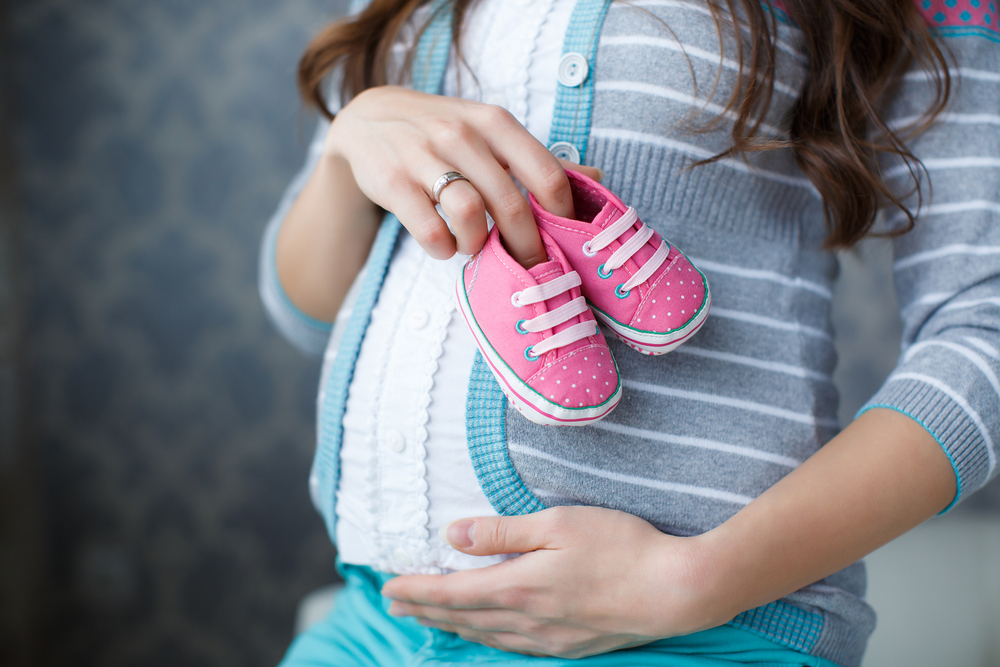Consultation
The first step is an evaluation with one of our reproductive endocrinologists, who will
discuss your treatment options and help you understand all aspects of the options
available. If you decide to proceed with a donor ovum cycle, your doctor will tell you
what you need to do to prepare. Your doctor will also perform a medical evaluation and
physical examination to ensure your health wouldn’t be jeopardized by pregnancy.
Cycle Preparation
To optimize the chances of success, your doctor will order several tests to identify and
correct any abnormalities that could interfere with fertilization or implantation. These
include a detailed semen analysis, a saline sonogram of the uterus, and basic blood
tests evaluating blood count, blood type, and thyroid function. We also require that
you’re up to date on recommended health screenings, such as the Pap smear and, for
women over 40, mammogram.
Though women achieve high success rates with egg donation throughout their 40s, the
risks during pregnancy increase as women approach age 50. If you’re 45 or older, we
require additional testing to ensure you begin pregnancy in optimal physical condition.
This testing includes a screen for diabetes, an EKG for your heart, and clearance by a
perinatologist, an obstetrician who specializes in high-risk pregnancies.
Selection of Donor
Choosing a donor is an important step in the process, and a uniquely personal decision.
BetaPlus offers an in-house online donor pool. You may also have a known donor, such
as a relative, friend, or acquaintance who you’d like to work with. Your reproductive
endocrinologist can help you determine if your known donor is a good candidate.
If you’re working with our in-house donor pool, you will receive access to our online
donor pool. You’ll have access to information about the donor’s background, medical
history, educational level, and family history. You’ll also have the option of viewing
photographs of the donors. Our in-house donors have undergone extensive screening,
and we’ll discuss any relevant findings from the screening process, including genetic
screening and testing, mental health screening, infectious disease results, and physical
findings.
Once you’ve chosen a donor, the donor coordinator will confirm that she’s free to go
through the egg donation process during the time period requested. Then, information
about your donor will be given to your doctor and nurse coordinator and your fresh cycle
will be synchronized. If you are opting for cryopreserved embryos, you can prepare
whenever you are ready for your frozen embryo transfer (FET).
Synchronization
The donor and recipient’s cycles must be synchronized for a fresh embryo cycle so that
the recipient’s uterine lining will be ready for implantation when the donor’s eggs are
retrieved and fertilized. This is usually accomplished by administering birth control pills.
When the cycles are synchronized, the donor takes medications to stimulate the growth
and maturation of a group of eggs. She’s then monitored by ultrasound and blood tests
for 10 to 14 days until the eggs are ready to be retrieved. Meanwhile, you will be taking
different medication to prepare your uterine lining for implantation of the embryos.
Egg Retrieval and Embryo Transfer
Once the donor’s eggs reach maturity, an egg retrieval is scheduled. Your partner or
sperm donor will provide a sperm sample on the day of the egg retrieval for
insemination of the eggs. When the embryos reach the proper stage for
transfer—usually day three—you will return to the clinic for transfer to your uterus.
We typically recommend transferring one or two embryos from donor cycles. The
decision of how many embryos to transfer will be discussed in detail with you. The
transfer of a single embryo reduces the risk of twins. Additional high-quality embryos
from the cycle will be frozen and preserved to use at another time.
Deciding to Use Ovum Donation
Donor ovum can be a wonderful way for couples who can’t conceive on their own to
become parents. Nevertheless, deciding to pursue it can be a difficult process. Patients
often come to this decision over time, after thinking hard about what becoming parents
really means to them. Couples may consider other options, including adoption or not
having children. Our psychologist is available to help you work through your thoughts
and feelings about your various options.
If you would like a free consultation, please visit our website, Facebook page, or call to
schedule your consultation.
